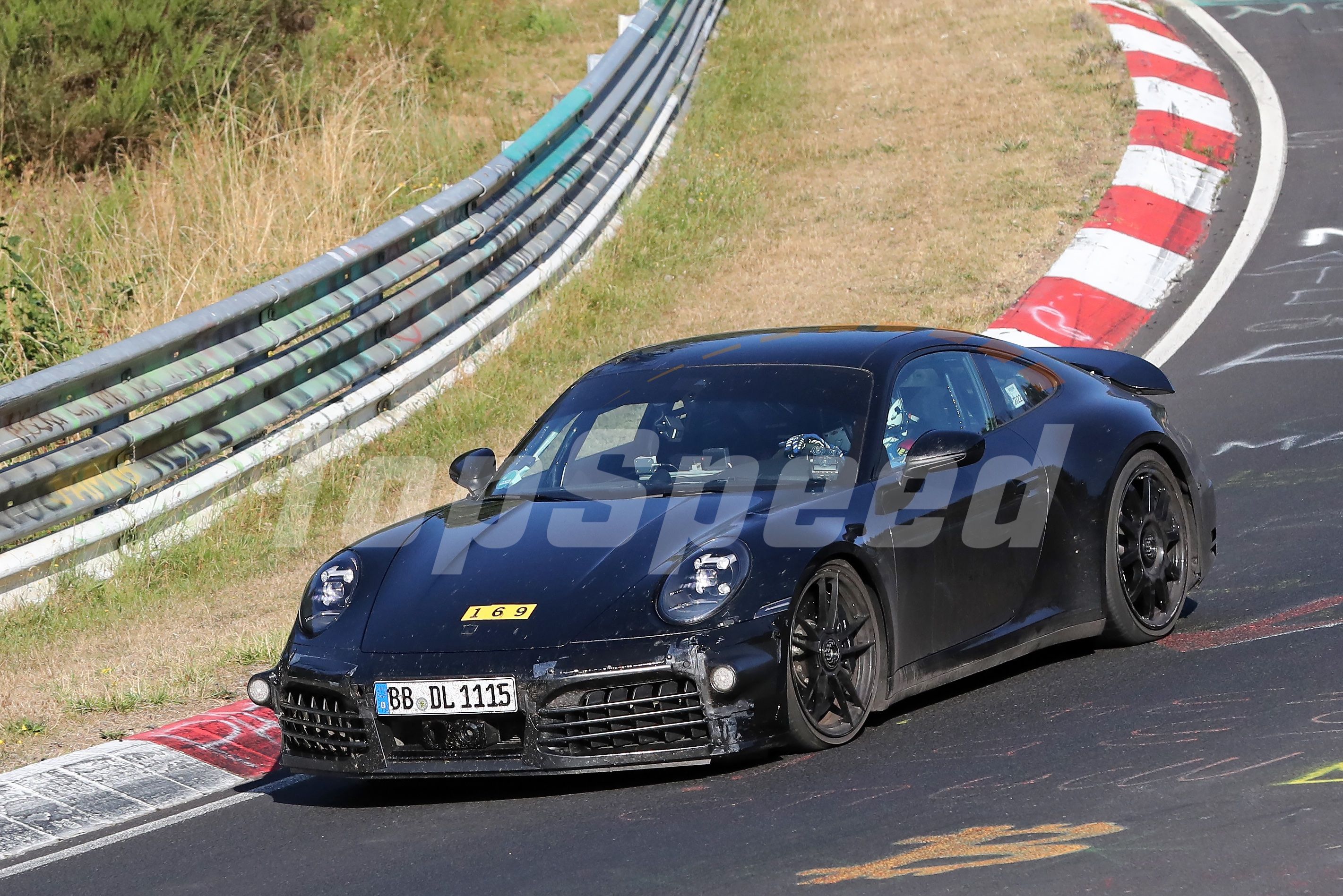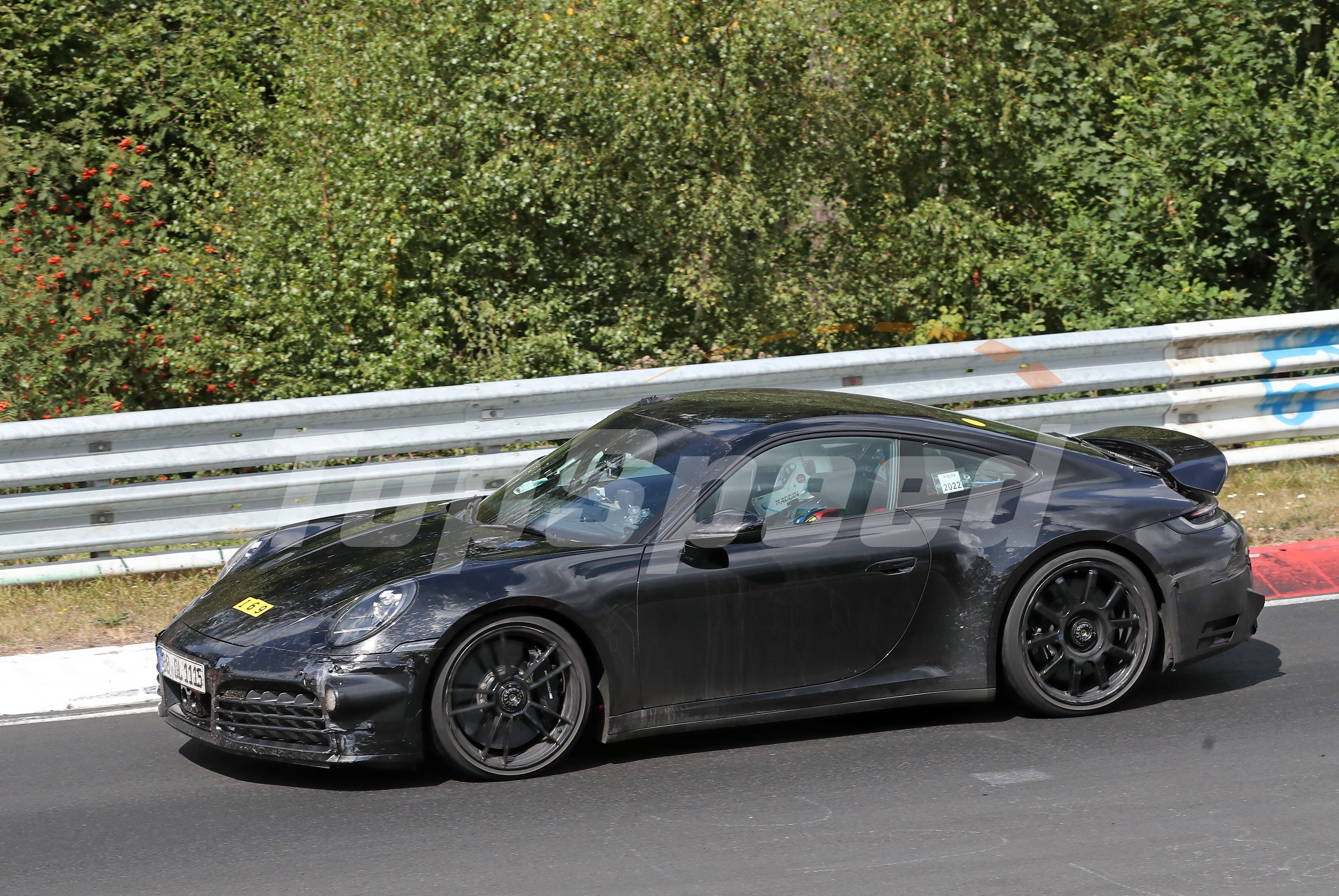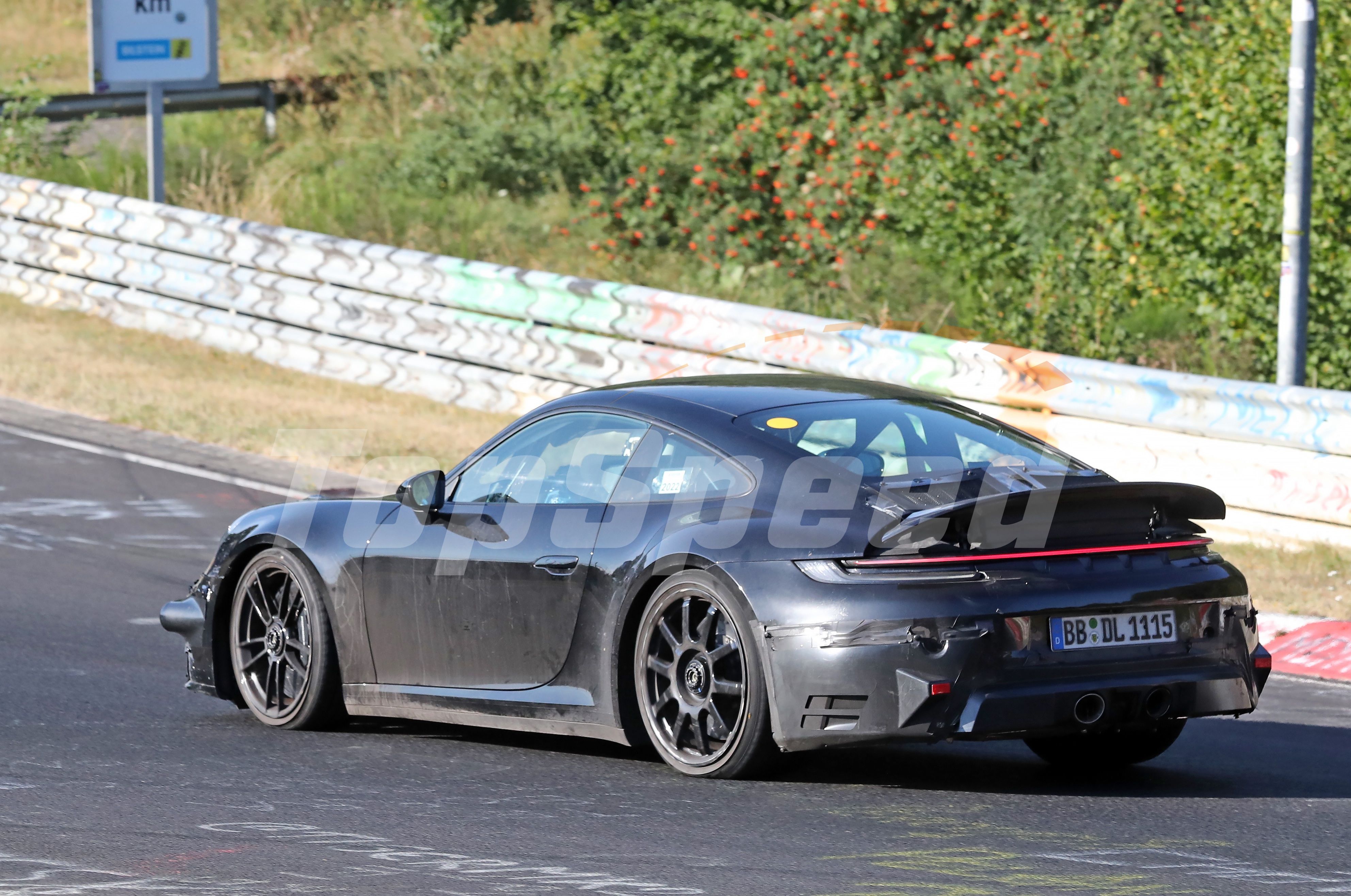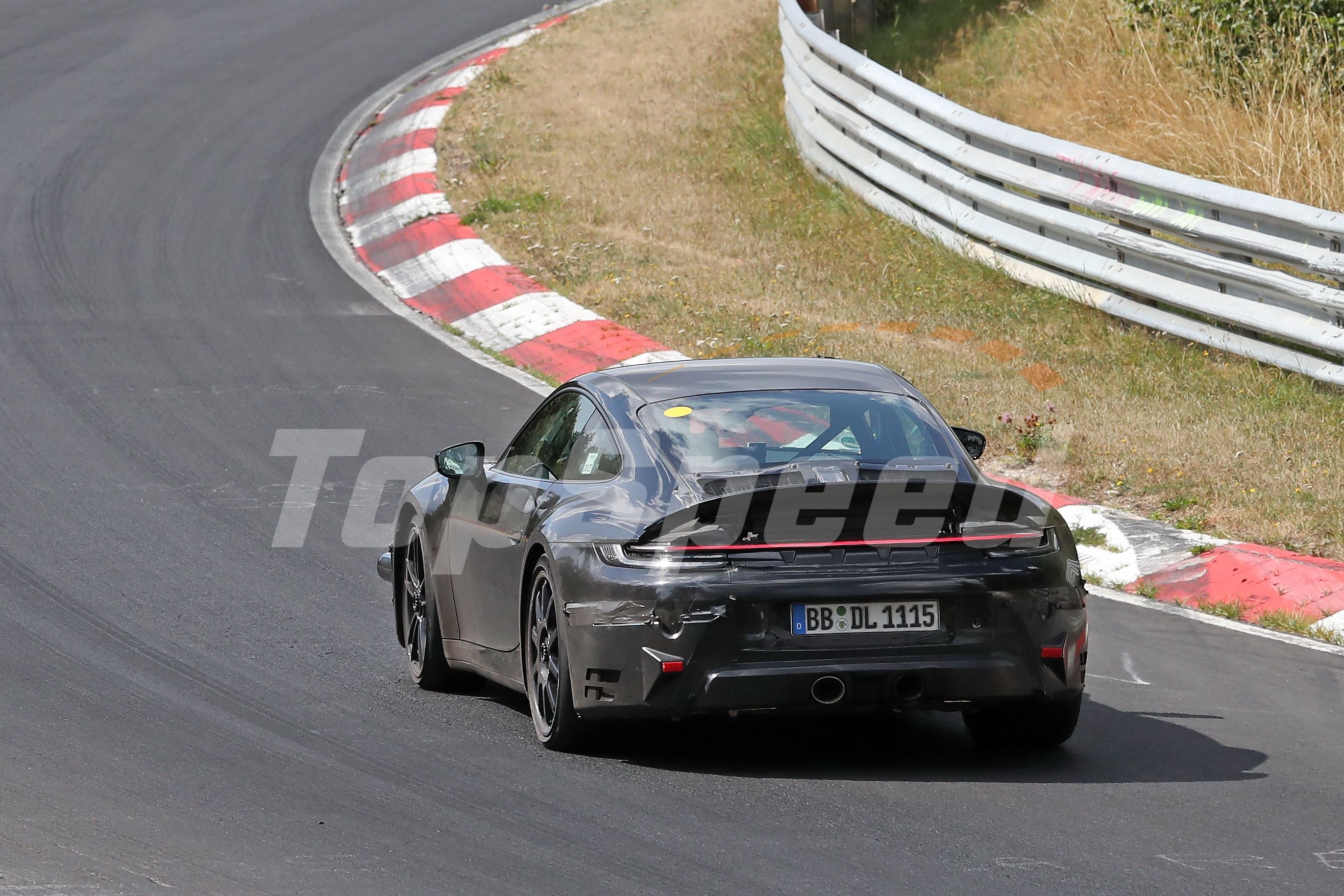The idea of a Porsche 911 Hybrid is an absurd one to most Porschefiles. The iconic, rear-engine sports car from Germany is in its eighth generation and still, largely, retaining the classic recipe from 1964. The evolution of the 911 has a couple of highlights. In 1975, turbocharging was introduced to the 911 lineup, spawning the first Turbo. In 1997, the 996 arrived and with it, the model transitioned from air cooling to water cooling.
In 2023, the 911 is due to receive another important “upgrade” that would determine the future of the model – electrification. Porsche is no stranger to high-performance hybrid models, but the notion of a 911 hybrid is a grim one for purists who are adamant that the German sports car should remain as lightweight and as simplistic as possible. With that said, here’s where the hybrid Porsche 911 may fall short and betray its roots.
It's Going To Be The Heaviest 911 So Far
It goes without saying that adding an electric motor to an internal combustion-powered vehicle adds complexity. With it comes to weight and while we are used to seeing each newer generation of a car become bigger and heavier, the 911 managed to remain a relatively lightweight vehicle. At its lightest, the Porsche 911 992 weighs 3,263 pounds (1,480 kg). At the same time, the 911 is also relatively small compared to its peers. This is especially apparent when compared to a Nissan GT-R, which is much heavier and weighs 3,847 pounds (1,745 kg).
Porsche has confirmed that the hybrid 911 is coming out between 2023 and 2024. It is also confirmed that the test mule, spotted on numerous occasions, is the 992.2, which is coming out in 2023. You will be glad to know, the Porsche 911 hybrid will adopt tech from motorsports, similar to the 918 Spyder. It will not be a plug-in hybrid, but rather a full hybrid, which is where the internal-combustion engine would pull double duty as a generator for the electric motors.
At this point, we don’t know how many electric motors the 911 hybrid is going to have. We know that Porsche trademarked the 911 Turbo E-Hybrid nameplate, making it the second “E-Hybrid” model after the Panamera. That model has two electric motors that can be added to each trim, in which case both axles are powered by the engine and electric motors (one per axle) simultaneously.
In contrast, the Porsche 918 Spyder also has two electric motors, but one of them is dedicated solely to powering the front axle. The E-Hybrid system adds 805 pounds (365 kg) to the Panamera. If the Porsche 911 Turbo E-Hybrid features a similar system, we can expect a curb weight of 4,446 pounds (2,005 kg), compared to the current Turbo S’ 3,615 pounds (1,640 kg). If so, then the upcoming 911 Turbo will desperately need that $10,000 Lightweight package.
Performance Gains Might Not Justify The Electrification
We know the 911 Turbo S E-Hybrid is almost here, which means the hybrid powertrain has already been decided. Currently, the most powerful 911 to come out of Zuffenhausen is the 991-based Porsche 911 GT2 RS with 690 horsepower (514 kilowatts). With that in mind, Porsche CEO, Oliver Blume, said in front of TopGear that this will be "the highest-performance 911 of all times", so we should expect at least 700 horsepower - which is 50 more than the current Turbo S model.
The Porsche 992 Turbo S is already blisteringly quick, capable of blasting the 0 to 60 mph (97 km/h) in as little as 2.2 seconds and destroying the quarter-mile in 9.9 seconds if the optional Lightweight Package has been ticked. It is obvious that 50 horsepower is not a big enough gain to justify the enormous increase in weight. Since Porsche engineers are not likely to ruin the most iconic German sports car of all time, for the sake of “sustainability”, they will have to resort to hybrid technology from the 919 LMP-h Le Mans race car. This, however, hides another problem.
A Hybrid 911 Could Become Too Expensive
The Porsche 911 hybrid promises to be the lightest hybrid vehicle yet. Its hybrid powertrain will be focused on performance rather than fuel economy. Since any form of hybridization translates to more weight, there is only one weight the 911 would remain relatively lightweight. The model will utilize tech from the 919 Hybrid racecars. Its system revolves around a 2.0-liter, turbocharged V4, a lithium-ion battery, and Motor Generator Unit – Heat (MGU-H) unit, which sends power to the front axle and negates turbo lag.
The hybrid 911 will also boast the 919 Hybrid race car’s self-charging tech. In race application, the system is good for 1,160 horsepower (865 kilowatts) while keeping the weight down to 1,872 pounds (849 kg). It’s also worth noting that the electric aspect of the Porsche 919, alone, contributes 441 horsepower (324 kilowatts), which means that “over 700” horsepower figure might be severely underrated when the 911 Turbo S E-Hybrid arrives. The real problem would be the price. The 911 was never a car to everyone's pocket, but motorsport-derived, the hybrid tech could leave a dent in your bank account that hardly justifies buying the hybrid 911.




